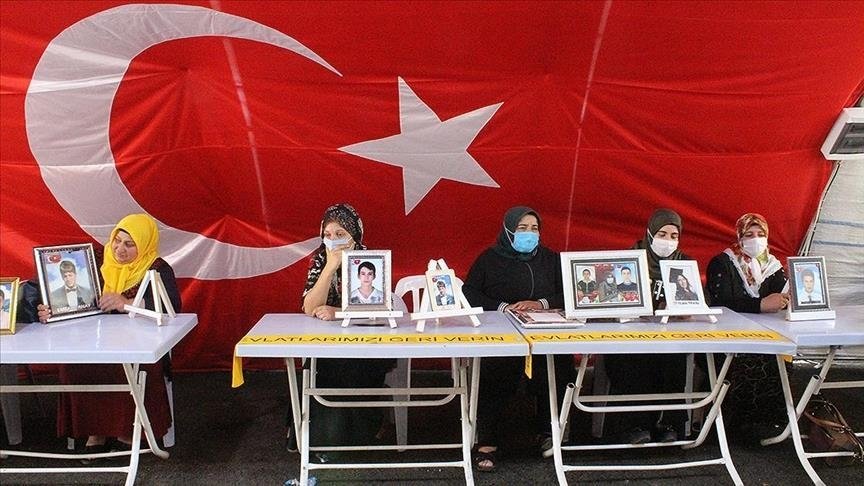ANKARA
When one utters “terrorism,” what comes to mind for many is an incident or an act by a group.
But the word has a much deeper meaning for others whose lives have been directly affected by terrorism.
“I used to believe that death was the worst thing but the disappearance of my beloved boy Emircan has taught me there are things worse than death,” said Nihal Ciftci. Her underage son was abducted by the PKK terror group in 2014 and has never been heard from again.
The tearful mother recalled on the day Emircan disappeared she prepared dinner for her family so they could enjoy their favorite dishes while having conversations about the day.
But hours went by and Emircan did not show up, prompting the family to inform authorities about his disappearance.
When she was told that five families also complained about the disappearances of their children, she thought it could not be a mere coincide and rushed to the Peoples’ Democratic Party (HDP) office in Hakkari, where she learned that Emircan was taken to join the ranks of the PKK group.
“I found myself running amok trying to do my best to find him,” she said. Her search even took her abroad but PKK affiliates battered her to discourage her search.
Although years passed, her wounds remain fresh.
“I have sold everything I had including my house, furniture and every other possession. The peace has left our house. The whole family has been devastated. We are not the same happy nuclear family. Our dreams have been shattered,” she said. “Had I learned that he was dead, I would at least go to his grave and pray for him. But not knowing his fate, it feels like I am in limbo and dying every single day.”
The whole process took a heavy toll on Ciftci and she attempted suicide multiple times.
The only solace she now finds is joining the sit-in protest outside the HDP office in Diyarbakir province, launched by mothers demanding the PKK return their children.
Another soul whose life was turned upside-down because of PKK terrorism is Sevket Bingol. His son Tuncay was abducted in 2014 at the age of 14.
“Ever since my son was drugged first and then abducted to make him join PKK ranks, the joy of our family, the colorful feature I had dreamt of were gone. It is like a whole family lost part of its soul for we do not even know if my boy is alive or not,” said Bingol.
“My wife is about to lose her mental health. It is declining day by day since Tuncay disappeared,” he said. “This state at home reflects on our other children.”
Tuncay’s siblings have lost interest in school and have been severely affected by the never-ending emotional discussions, or occasional breakdowns, according to the Bingol, who said his psychology was also not stable because he could not help think of other children who would be somehow abducted, or tricked into joining the terror group.
The UN General Assembly established Aug. 21 as the International Day of Remembrance of and Tribute to the Victims of Terrorism in a bid to honor and support victims, survivors of terrorism and to promote, protect the fulfillment of their human rights along with fundamental rights.
Although one of the main goals of the PKK is to divide Turkey society, its forced recruitment and abduction methods have greatly backfired as a growing number of families have joined the sit-in in Diyarbakir since Sept. 3, 2019, next to the HDP building.
Families are in full solidarity and look forward to seeing the return of their children.
In its more than 35-year terror campaign against Turkey, the PKK — listed as a terrorist organization by Turkey, the US, and the EU — has been responsible for the deaths of at least 40,000 people, including women, children and infants.










Discussion about this post